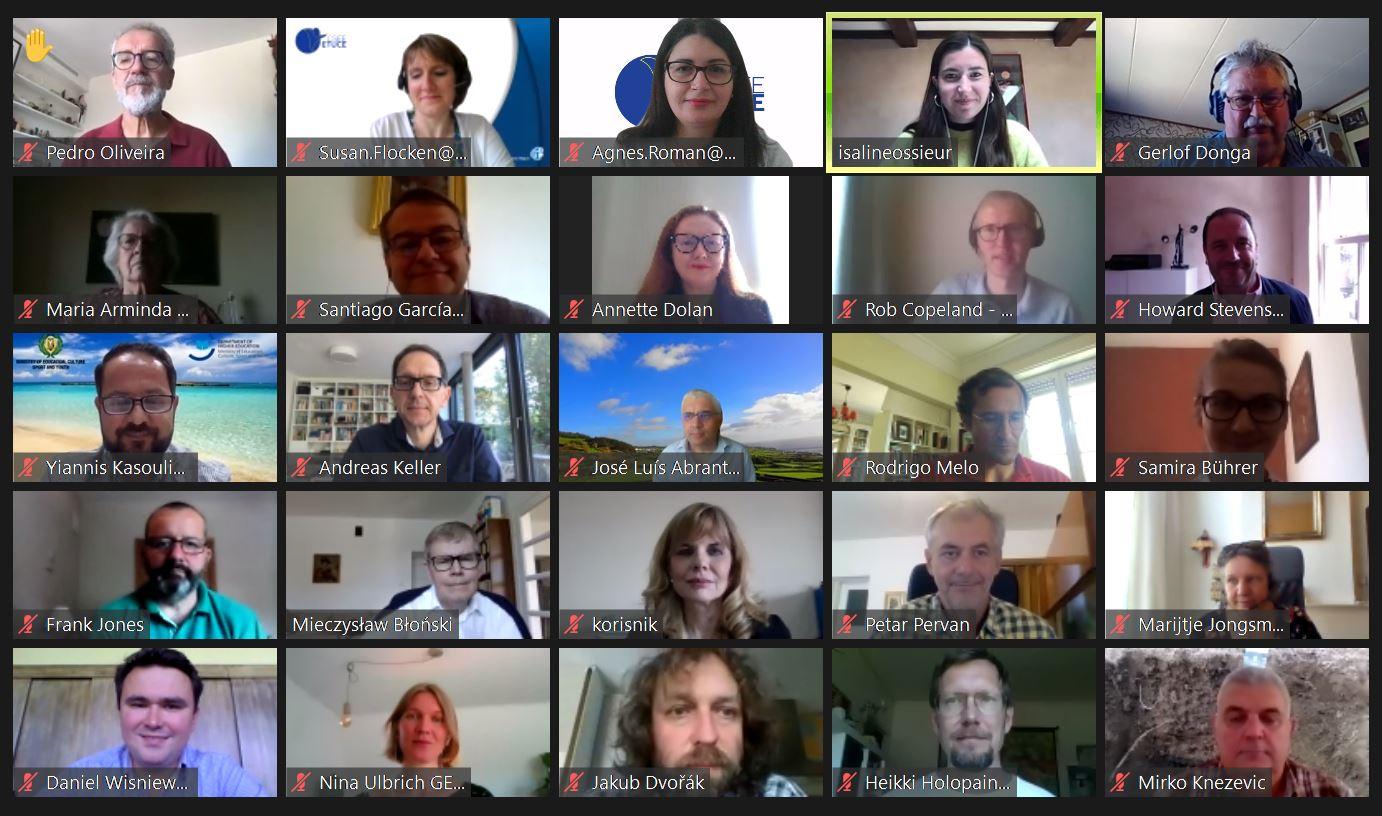Education social partners’ kick-off webinar on quality of academic teaching
Published:
On 14 June 2021, around 40 representatives from ETUCE and EFEE organisations gathered online for the kick-off webinar launching the new joint project “European sectoral social partners in education promoting quality of academic teaching and management”. The project, coordinated by the European Federation of Education Employers (EFEE) aims to continue the work laid out by the European Sectoral Social Dialogue for Education Work Programme 2020-2021, which underlines that social partners work together to ensure continuous professional development, gender equality and inclusive, safe and healthy working environments for teachers.
At the kick-off webinar, Andreas Keller, ETUCE Vice-President and ETUCE representative in the Bologna Follow-Up Group presented the Rome Communiqué and its ANNEX lll on the Recommendations for the Enhancement of Learning and Teaching. These documents are particularly relevant for social partners as they address the need for continuous professional development for educators, decent working conditions, manageable teaching workload, digitalisation in teaching and learning and attractive tenure opportunities, which have been affected by the recent global COVID-19 crisis.
Dr. Howard Stevenson, from the University of Nottingham, who supports the project as researcher, highlighted the complexity of conducting research on the social dialogue’ role on influencing quality teaching and learning in higher education. He underlined that the sector can be reshaped if social partners collaborate. He called for a strong need to better capture the complexity of social dialogue in the higher education sector and to identify good practices, as well as the factors that are hindering the development of extended bargaining.
Participants also had the opportunity to discuss the trends of organisational development in higher education in light of the COVID-19 pandemic, the attractiveness of the profession and professional development of staff, as well as working conditions and supportive working environments. The social partners highlighted the impact of the global crisis on the democratic organisation of universities: decline of collegiality and democracy, weakening of cooperation, change of management, and reduction of the cooperation between teachers. Teachers lack motivation and face higher workload and pressure on conducting research and publishing papers than before. Due to limited public funding, they work in precarious conditions and on short-term contracts which negatively impacts the quality of teaching.
Rob Copeland, the Chair of the ETUCE Higher Education and Research Standing Committee, underlined that further discussions were needed between the education social partners to keep the teaching profession and working conditions of academics high on the policy agenda with a view to continue improving the quality of academic teaching and management in higher education. “To put recognition of teaching higher in the policy agenda has been a demand of the education trade unions and it is very welcomed that the project focuses on this in relation to social dialogue and collective bargaining agreement and to the Annex III of the Rome Communique on Learning and Teaching”, said Rob.